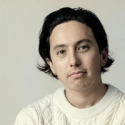The News
Linear television may be dying, but Mark Lazarus believes he has a brief window to turn his declining cable assets into digital media powerhouses.
In the 10 months since NBCUniversal announced that it would spin off its cable television networks, including MSNBC, CNBC, the Golf Channel, and USA, the veteran NBC executive tapped to lead the new company has been working on plans to determine how to invest the profits generated by cable television subscriptions in order to save the brands from irrelevance and extinction.
In a revealing interview, his first since the independent company called Versant began embarking on its uncoupling from NBCUniversal, he offered to Semafor a broad vision for the new enterprise. Lazarus envisions Versant as a bridge between the past and future of media, a company that will use the large but declining cash generated by cable subscriptions to fund acquisition and investment in building the next generation of news and sports media.
“These businesses spin off a lot of cash, a lot of money, they’re very profitable,” he told Semafor. “But our head’s not in the sand about the direction.”
“What’s been going on over the last four or five years at NBCU is we’ve been harvesting that cash and investing it in other things that were priorities at the company, things like theme parks and Peacock and other Comcast initiatives,” he said. “The thesis now is, could we take this cash, keep it inside of these businesses or housed in something that has these businesses in them and actually reinvest in these businesses and give them growth opportunit[ies]? Not necessarily that all of a sudden we’re gonna stem the tide of what’s happening with linear TV, but how do we serve those audiences?”
Since NBCU and Comcast’s chairman, Brian Roberts, announced that the company would be spinning off what was referred to as “SpinCo” late last year, many of Lazarus’ subordinates have been largely focused on the complicated details of unwinding several closely intertwined television networks, which shared broadcast resources and the same iconic office space at 30 Rock. But the CEO told Semafor he has dedicated much of his time to planning how the businesses should adapt and grow once the companies gain greater control over their cable profits.
Lazarus said that he wanted the new company to diversify its revenue, aiming to bring in a third from cable subscriptions, a third from advertising, and a third from a variety of new digital sources. Lazarus said the best current example within Versant’s portfolio is the Golf Channel, which he said was the most mature of Versant’s businesses, deriving about 50% of its revenue from cable and half from other sources, including an app for booking tee times at golf courses.
Some of the opportunities will come naturally, he argued.
Lazarus said that due to a strategic decision years earlier, NBC News had deliberately chosen to underinvest in MSNBC’s digital business, meaning the network currently had “no real digital footprint” beyond some text based articles and clips. That will change rapidly in the coming months, Lazarus said.
“We now can invest in a video business with free video and some direct consumer business that we’re working on for that progressive audience that we serve. That’s an investment that wasn’t being made that we will now have the capital to do that, and then expand the audience base, and hopefully reach not just the people who are current viewers, but people who aren’t current viewers, but who have an affinity for the kind of news and opinion that MS is bringing.”
“It won’t be just a direct lift of what we do on air,” he added.
Lazarus said that there are some opportunities for organic growth, but that the company will also aggressively pursue acquisitions.
Asked whether he had his eyes on the political startups Crooked Media and The Bulwark, he noted that stars from both companies often appear on MSNBC’s air, and resemble the kinds of businesses that Versant will theoretically be interested in.
“Watch any number of newsletter podcasters that are on MSNBC as guests, and imagine some of them that might make sense,” Lazarus said. “Certainly, we’d be interested in the ones that fit our vertical plans.”
Max’s view
Versant has accomplished a fairly impressive messaging feat: It has turned the spinoff of what are broadly considered to be dying media assets into a positive story about growth.
Part of this is good public relations work. Part of it is the strong balance sheet. But the sentiment is shared internally. In talking to people around the company since the spinoff, there’s a palpable sense of cautious optimism: The networks, as Lazarus said, make a lot of money that will theoretically be invested back into the business. Already it’s proving to be a boon in the short term: MSNBC has hired dozens of top journalists, primarily in Washington, DC, who are generating real scoops and attention for the network.
But the big questions remain unanswered: Can a media company formed out of convenience define itself as an independent brand? Is it enough in 2025 to be a collection of somewhat random media titles no longer linked by the iconic peacock branding or Olympic broadcasts? And even if Versant can cohere into a company with a clear identity, can the company do it in time to beat the paid-TV cliff — or will it inevitably fall into the hands of cost-cutting investors happy to manage decline?
There are also smaller but no less important questions that will surely define Lazarus’ tenure, and how people will perceive Versant.
Will Lazarus have the stomach for uncomfortable political speech controversies that come with running an ideological media company like MSNBC? The swift firing of commentator Matthew Dowd over what were ill-timed remarks (though hardly the most insensitive comments on cable even that week) could be reasonably seen as a sign of editorial clarity and a squeamishness around social media backlash. Acquiring businesses or media figures from the digital world, which is often much less sanitized than cable television, could push the limits further.
But moments of the interview hinted at the company’s direction: Lazarus has tasked subordinates with the complex task of unwinding the actual operations, leaving him to focus on the vision for the brands moving forward. That includes supplementary acquisitions, which he was not shy about acknowledging.
His answers should also give Versant employees some comfort on a key question: He and his core investor are committed to the project. Lazarus suggested that Roberts would remain a major shareholder for an extended period of time, and mused about ending his career as CEO of Versant.
Cynics may not believe the aggressive talk from the company. Recent media history also suggests the cynics may be right: The last two decades have seen the prolonged consolidation and squeezing of once storied and influential local TV stations and newspapers for pennies. Still, a few news companies have managed to transform legacy businesses into dynamic digital media organizations and grow, most notably The New York Times.


